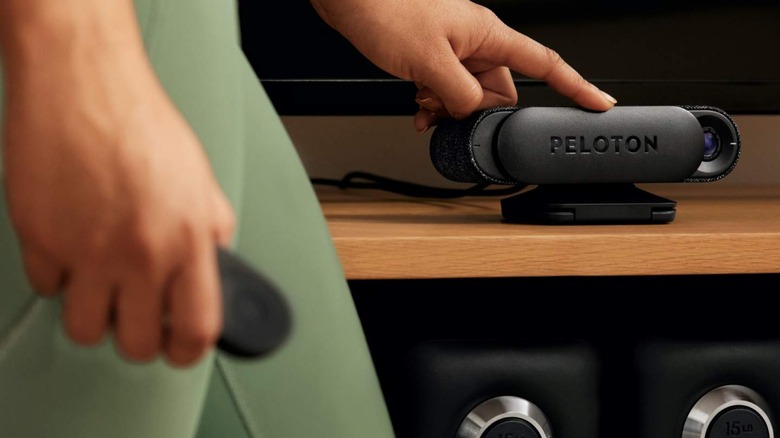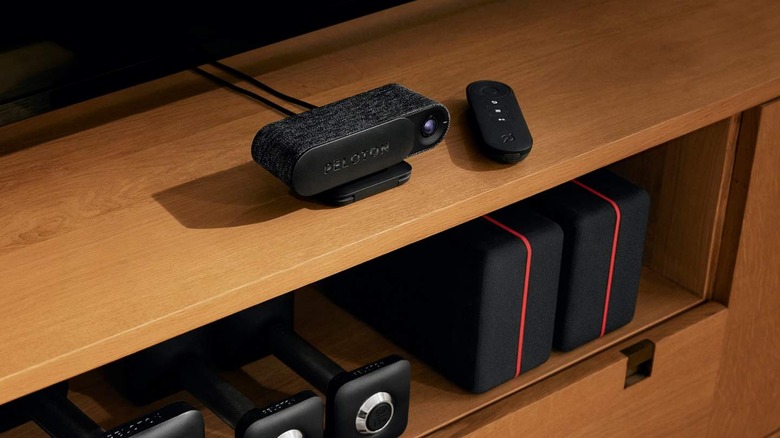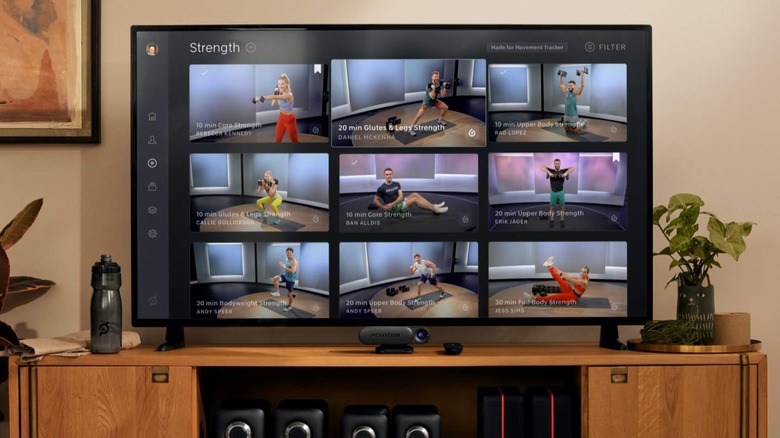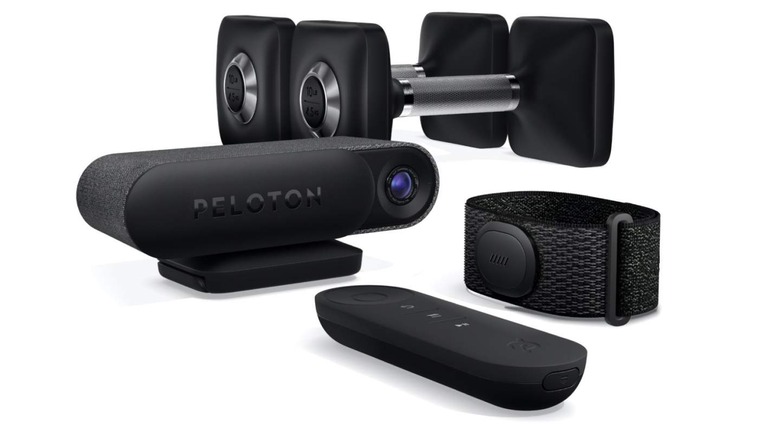Peloton Guide Is A $495 Camera That Uses Your TV For Strength Training
Peloton is adding to its connected health range with Peloton Guide, promising AI-powered strength training via a camera which plugs into your TV. The box tracks movement either using weights or without them, with strength classes initially followed by other movement and class types expected to be added later on.
The box itself resembles a webcam, with a forward-facing camera and a built-in microphone. There's a sliding privacy cover that can block the lens for privacy, while the microphones can be deactivated with a physical switch too. While the microphones can be used for voice-control over Peloton Guide during workouts, there's also a physical remote control that can used instead.

With the camera, and Peloton's software, "hundreds" of stretch classes will allow comparison of the user's form to the instructor's on-screen in real-time. There'll be the ability to see your own form on-screen too, for easier corrections. Peloton Guide will also track which workouts focused on which areas of the body, and then recommend specific sessions to ensure more well-rounded training.

Unlike some vision-based weight training systems on the market, Peloton's doesn't require special weighs for tracking. That said, the company does offer its own line-up for those who don't have their own.
Initial instructors onboard offering weight and strength classes will include Robin Arzon, Ben Alldis, Callie Gullickson, Rebecca Kennedy, Rad Lopez, Matty Maggiacomo, Daniel McKenna, Selena Samuela, Jess Sims, Andy Speer, Chase Tucker, and Adrian Williams.

It's been a shaky year for Peloton so far. The company has faced increased competition from other connected home workout platforms, while the easing of pandemic restrictions that allowed gyms to reopen has led to a dip in demand. Meanwhile, safety recalls for Peloton's treadmills – after several cases of injury and even death – forced the company to slow down at a time when interest was particularly high.
Peloton Guide, then, will focus on a number of potential areas. For a start, it'll be the company's most affordable model by some measure. It'll expand its workout options considerably over the current roster of bike, treadmill, yoga, and similar classes, spreading into a category Peloton has yet to fully embrace.

Alongside Peloton Guide, the company is also releasing a new way to track heart rate. The Peloton Heart Rate Band will replace the Peloton Heart Rate Monitor, switching to a textile forearm strap design. It also has 5 LEDs on the band itself, which show heart rate zone.
Peloton Guide will go on sale in the US and Canada in early 2022, followed by expansion in the UK, Australia, and Germany. It'll be priced at $495, while Peloton Guide Membership will be $12.99 per month and support up to five users. Those with existing Peloton membership will get access to Peloton Guide classes in their current subscription.
As for the Peloton Heart Rate Band, it'll be included with the Peloton Guide, but also sold separately. It'll work with the Guide, Bike, Tread, and Peloton app, and be priced at $89 when it releases in early 2022.
